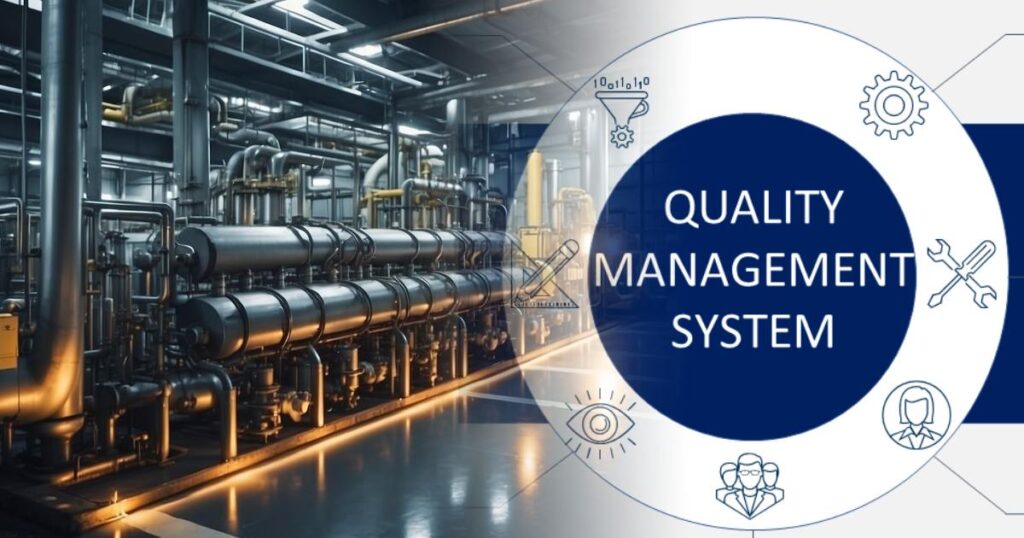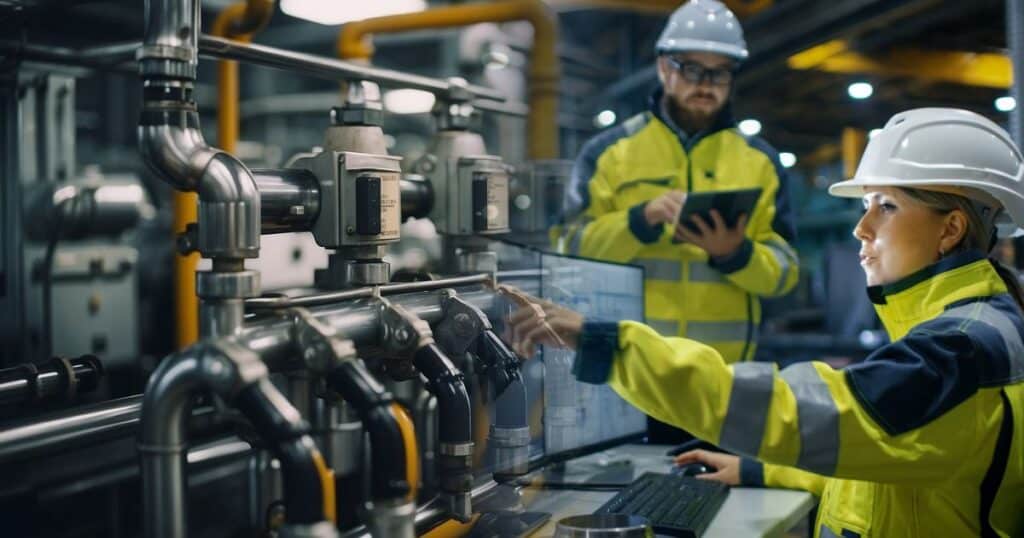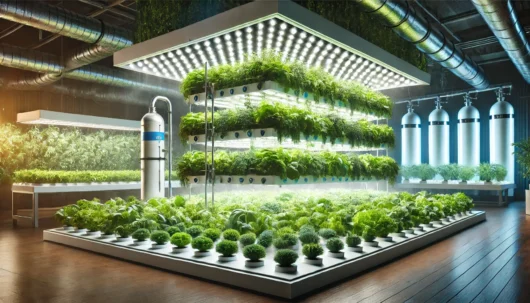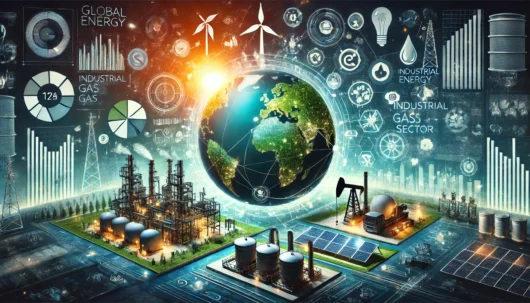In industrial gases, quality assurance is critical to ensure safety, reliability, and compliance with standards. The supply of gases such as oxygen, nitrogen, and carbon dioxide, crucial for various industries, hinges on stringent quality protocols. These protocols safeguard against contamination, guarantee consistent gas compositions, and maintain the high standards users require. Decisive quality management frameworks within the gas supply chain are indispensable for upholding these standards, ensuring operations run smoothly and that safety remains the top priority.
Implementing operational excellence through quality assurance methods in the gas industry uplifts safety benchmarks and optimises efficiency and performance. The sector minimises risks and maximises productivity by embedding quality checks at each supply chain link, from production to delivery. This is paramount in applications across various industries, including medical, food processing, and energy. As you navigate the complexities of the gas supply industry, your understanding of quality assurance helps you recognise its significance in driving industry applications toward operational excellence.
Key Takeaways
- Quality assurance in gas supply is vital for safety and compliance.
- Effective management frameworks contribute to supply chain integrity.
- Operational excellence is achieved through rigorous quality checks.
Quality Management Frameworks in Gas Supply

Quality management in gas supply ensures the efficiency, safety, and compliance of oil and gas industry operations. High standards uphold environmental protection and the reliability of fuels and hydrocarbons.
ISO and API Standards Integration
The International Organization for Standardization (ISO) and the American Petroleum Institute (API) provide frameworks integral to the oil and gas industry. Combining ISO 29001 with API Specification Q2, a quality management system tailored for service supply organisations, enhances operational performance and adherence to standards.
Implementing TQM and Total Quality Management (TQM)
TQM in gas supply is a holistic approach focusing on quality assurance services and fostering a quality culture. It utilises improvement tools and benchmarking to build a consistent quality management practice from production to distribution.
Certification and Quality Training
Certification underpins the credibility of technical experts, engineers, and technicians. Specialised training and skills development are essential to maintain high-quality management standards in oil and gas operations’ engineering and technical aspects.
Regulatory Compliance and Inspections
Adhering to federal and state regulations is non-negotiable in the oil and gas sector. Regular inspections ensure that operations meet safety and environmental requirements and that products comply with regulatory standards.
Technical and Non-Destructive Testing
Non-destructive testing (NDT) and mechanical testing are critical services within gas supply testing. They provide valuable insights into the integrity of infrastructure without causing damage, thus ensuring the continuity of operations.
Quality Management Systems and Control
A robust quality management system (QMS) is the backbone of gas supply quality control (QC). QMSs establish processes for performance monitoring and consistency in the production and delivery of natural gas and other hydrocarbons.
Audits and Supplier Evaluations
Supplier and factory audits are integral to verifying that the supply chain aligns with quality standards. These evaluations ensure operations meet established benchmarks, enhancing efficiency and maintenance protocols.
Engineering and Construction Standards
Precise procedures and standards govern engineering and construction within the gas supply chain. Adherence to these guidelines ensures the safe and efficient construction and operation of gas infrastructure.
Petroleum and Natural Gas Specifications
Specifications for petroleum and natural gas are detailed to safeguard the quality of crude oil, LNG, and other fuels. Meticulous specifications ensure that products are consistent and conform to industry and consumer expectations.
Operational Excellence and Industry Applications

In the competitive gas industry, your commitment to operational excellence ensures adherence to quality and efficiency and supports sustainable and economic growth. This section examines how integrating quality assurance practices enhances various aspects of gas supply operations.
Upstream and Downstream Processes
You must implement rigorous quality control and maintenance procedures to maintain excellence in the upstream sector involving exploration and drilling. In downstream processes, such as refining, precise controls and continuous monitoring are pivotal to producing high-quality end products.
Gas Production and Energy Efficiency
Your gas production facilities need to pursue higher energy efficiency constantly. This conserves resources and minimises environmental pollution, improving economic and ecological balance.
Supply Chain and Material Quality
For the supply chain, the integrity of raw materials is crucial. You’re responsible for sustaining a chain where quality issues are promptly identified and addressed, ensuring that the durability and standards of materials are uncompromised.
Quality Control in Diverse Industries
From the electronics to the automotive industry, diverse sectors rely on the impeccable quality of gas supply. Offer quality control services to ensure manufacturers meet industry standards and regulatory requirements.
Environmental and Sustainability Practices
You must enforce eco-friendly processes across all operations. Effective management of environmental safety and sustainable practices guarantees compliance and fosters goodwill among stakeholders.
Innovation and Quality Enhancement in Manufacturing
Innovation is vital in advancing quality improvement and ensuring the durability of production equipment. Work with manufacturers to integrate new technologies and methods that elevate product quality and production standards.
Safety Protocols and Risk Management
Establishing safety protocols and effective risk management systems protects your workforce and operations from gas production and supply hazards, thus preserving business integrity and continuity.
Technology Integration and Automation
Technology and automation in monitoring and control systems greatly enhance efficiency. It allows for better data gathering and decision-making, aligning operational activities with the highest quality standards.
Frequently Asked Questions
Gas supply quality assurance is crucial for safety, compliance, and customer satisfaction. High-quality standards must be met to ensure safe and efficient operation throughout the industry.
How are quality assurance processes implemented in the petroleum industry?
The petroleum industry implements quality assurance processes through rigorous testing, compliance with international standards, and adopting quality management programs. Best practices include frequent inspections, certification processes, and training programs to maintain and improve quality at all levels of production and distribution.
What are the critical components of quality control for petroleum products?
The critical quality control components for petroleum products include sampling, measuring physical and chemical properties, and meeting established specifications. Analysing product quality at different supply chain stages helps identify defects early.
Can you explain the four main types of quality assurance commonly practised?
The four main types of quality assurance commonly practised are preventive measures, appraisal activities, internal audits, and management reviews. Preventive measures aim to stop defects before they occur, appraisal activities assess ongoing work, internal audits verify compliance with internal standards, and management reviews evaluate the effectiveness of the whole quality system.
What are the primary functions of a quality assurance department in the oil and gas sector?
The primary functions of a quality assurance department in the oil and gas sector include policy development, process evaluation, non-conformance management, and continuous improvement. They help ensure all procedures, policies, and regulatory requirements are fully understood and adhered to across the organisation.
How does quality control differ from quality assurance in gas supply?
Quality control in gas supply is about operational techniques and activities used to fulfil requirements for quality. On the other hand, quality assurance includes the systematic activities and planned processes that provide confidence that the gas supply meets quality standards.
What methodologies are used to ensure the integrity and safety of gas supplies?
Various methodologies are used to ensure the integrity and safety of gas supplies, including risk assessments, integrity management programs, and the implementation of Quality Assurance Project Plans (QAPPs). These methodologies are essential for maintaining high safety standards and operational readiness in case of unforeseen discrepancies or incidents in gas supply systems.


